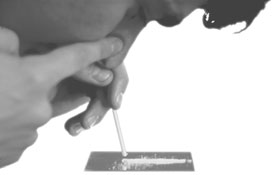
 Collection
CollectionDrugs: the complete collection
All Effectiveness Bank analyses to date of documents related to use and problem use of illegal drugs starting with the analyses most recently added or updated, totalling today 815 documents.
![]() Click blue titles to view full text in a new window
Click blue titles to view full text in a new window![]() Use the selectors at the bottom to turn to the next page in the list of documents
Use the selectors at the bottom to turn to the next page in the list of documents
REVIEW 2009 HTM file
School-based programmes that seem to work: Useful research on substance use prevention or suspicious stories of success?
Pape H.
Nordic Studies on Alcohol and Drugs: 2009, 26(6), p. 521–535.
According to a commentator, this "trenchant critique" of the evidence for school-based alcohol and drug prevention curricula is "unfortunately, largely on target". The focus is on methodological concerns which might undermine positive findings, and on whether these survive a programme's transplantation to real-world conditions.
REVIEW 2012 HTM file
Recovery/remission from substance use disorders: an analysis of reported outcomes in 415 scientific reports, 1868–2011
White W.L.
[US] Great Lakes Addiction Technology Transfer Center, Philadelphia Department of Behavioral Health and Intellectual Disability Services and Northeast Addiction Technology Transfer Center, 2012.
Positive message of this compendious synthesis of hundreds of studies is that "Recovery is not an aberration achieved by a small and morally enlightened minority of addicted people. If there is a natural developmental momentum within the course of [these] problems, it is toward remission and recovery."
DOCUMENT 2011 HTM file
Psychosis with coexisting substance misuse: assessment and management in adults and young people
National Collaborating Centre for Mental Health and National Institute for Health and Clinical Excellence.
[UK] National Institute for Health and Clinical Excellence, 2011.
Psychosis plus harmful substance use is a toxic mixture which worsens the prospects of recovery from mental illness. How should it be dealt with, and what are the respective roles of mental health and substance use services? This UK guideline developed by an expert group has some of the answers.
REVIEW 2012 HTM file
New heroin-assisted treatment: Recent evidence and current practices of supervised injectable heroin treatment in Europe and beyond
Strang J., Groshkova T., Metrebian N.
Lisbon: European Monitoring Centre for Drugs and Drug Addiction (EMCDDA), 2012.
Prescribing oral methadone to heroin addicts divides opinions, but prescribing injectable heroin elevates the controversy to another level. Fortunately we now have six randomised clinical trials involving over 1500 patients to ground us in the evidence – and this European Union review to pull it all together.
Humeniuk R., Ali R., Babor T. et al.
Addiction: 2012, 107(5), p. 957–966.
Orchestrated by WHO, across all four countries this rare attempt at screening and brief intervention for problems arising from illegal drug use identified at front-line health care centres found modest reductions in use/risks, but there was a puzzling opposition between particularly positive results from Australia and seemingly negative ones from the USA.
Humeniuk R, Dennington V, Ali R et al.
Geneva, Switzerland: WHO, 2008.
Rare attempt at screening and brief intervention for actual or potential problems arising from illegal drug use among primary care patients suggests that screening itself reduces use levels and that further intervention might be worthwhile among high-risk populations.
STUDY 2011 HTM file
Interim methadone treatment compared to standard methadone treatment: 4-month findings
Schwartz R.P., Kelly S.M., O'Grady K.E. et al.
Journal of Substance Abuse Treatment: 2011, 41, p. 21–29.
Is regular counselling really essential to the effectiveness of methadone maintenance treatment, or are
treatment entry and the power of high-dose methadone enough in themselves for many patients? At least in
the first four months, this US study suggests the latter.
STUDY 2010 HTM file
Computer-assisted cognitive rehabilitation for the treatment of patients with substance use disorders: a randomized clinical trial
Fals-Stewart W, Lam W.K.K.
Experimental and Clinical Psychopharmacology: 2010, 18(1), p. 87–98.
Researchers have long suspected that pre-existing or drug/alcohol-induced cognitive deficits prevent patients making the most of treatments which rely on complex verbal communications and understandings. For the first time this US study has shown that psychological exercises to remedy these deficits do improve outcomes by helping patients get to grips with treatment.
STUDY 2011 HTM file
Recovery innovations in Yorkshire and Humberside
Best D., Knowles D., Morell M.
The authors, 2011.
The enthusiastic shoots of a recovery orientation emerging in treatment systems and services in northern England faced considerable challenges in gaining sufficient coverage to transform the established landscape – literally in the case of a plan to communally build an Iron Age roundhouse village.
STUDY 2013 HTM file
Criminal justice responses to drug related crime in Scotland
Malloch M., McIvor G.
International Journal of Drug Policy: 2013, 24, p. 69–77.
In one expert package, the recent history, results, achievements and possible drawbacks of Scotland's concerted attempt to engage drug-driven offenders in treatment at nearly every stage of the criminal justice system. Widening treatment access may have been the main plus, also widening entanglement in the criminal justice system the main minus.
Select search results page